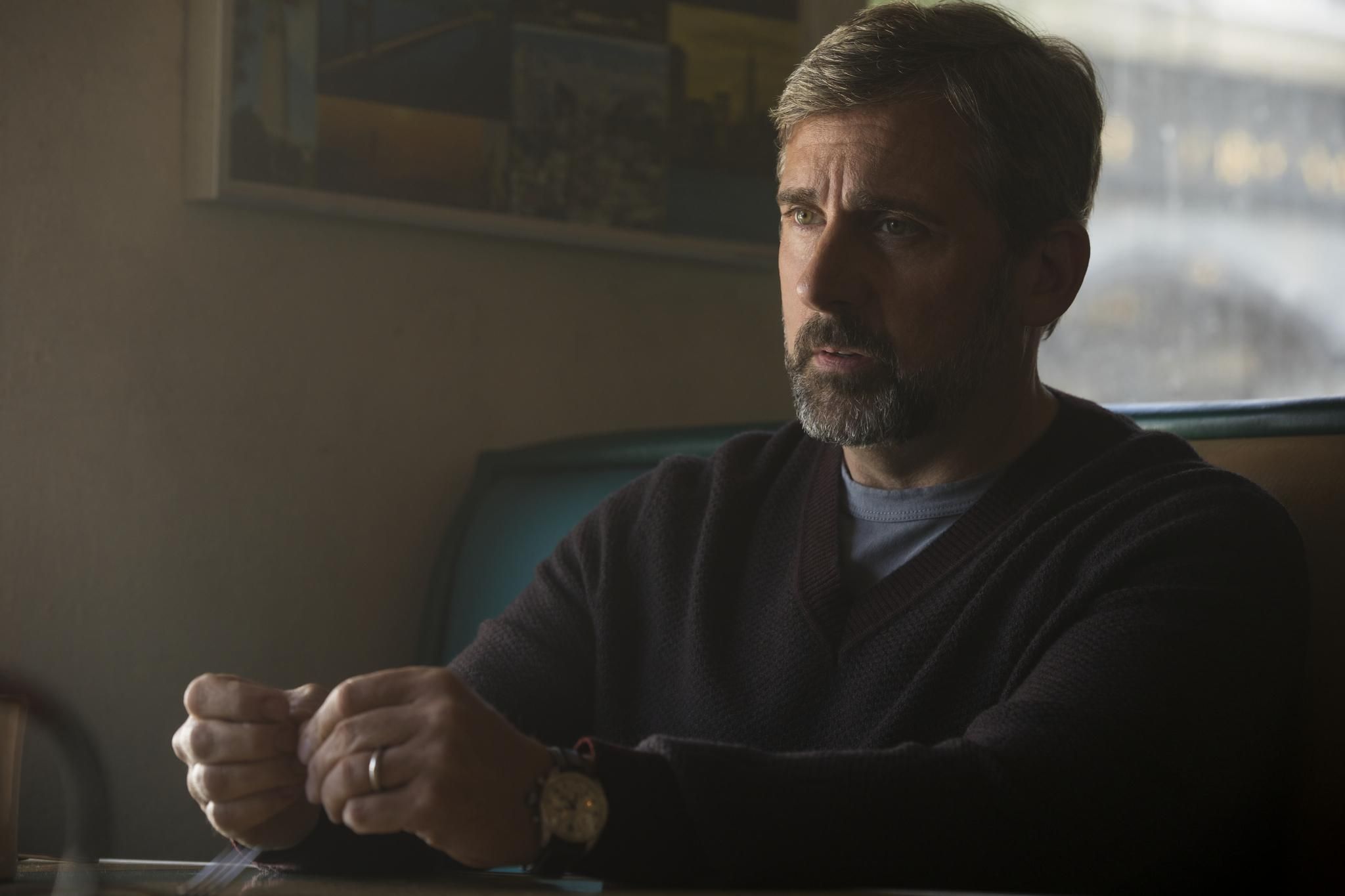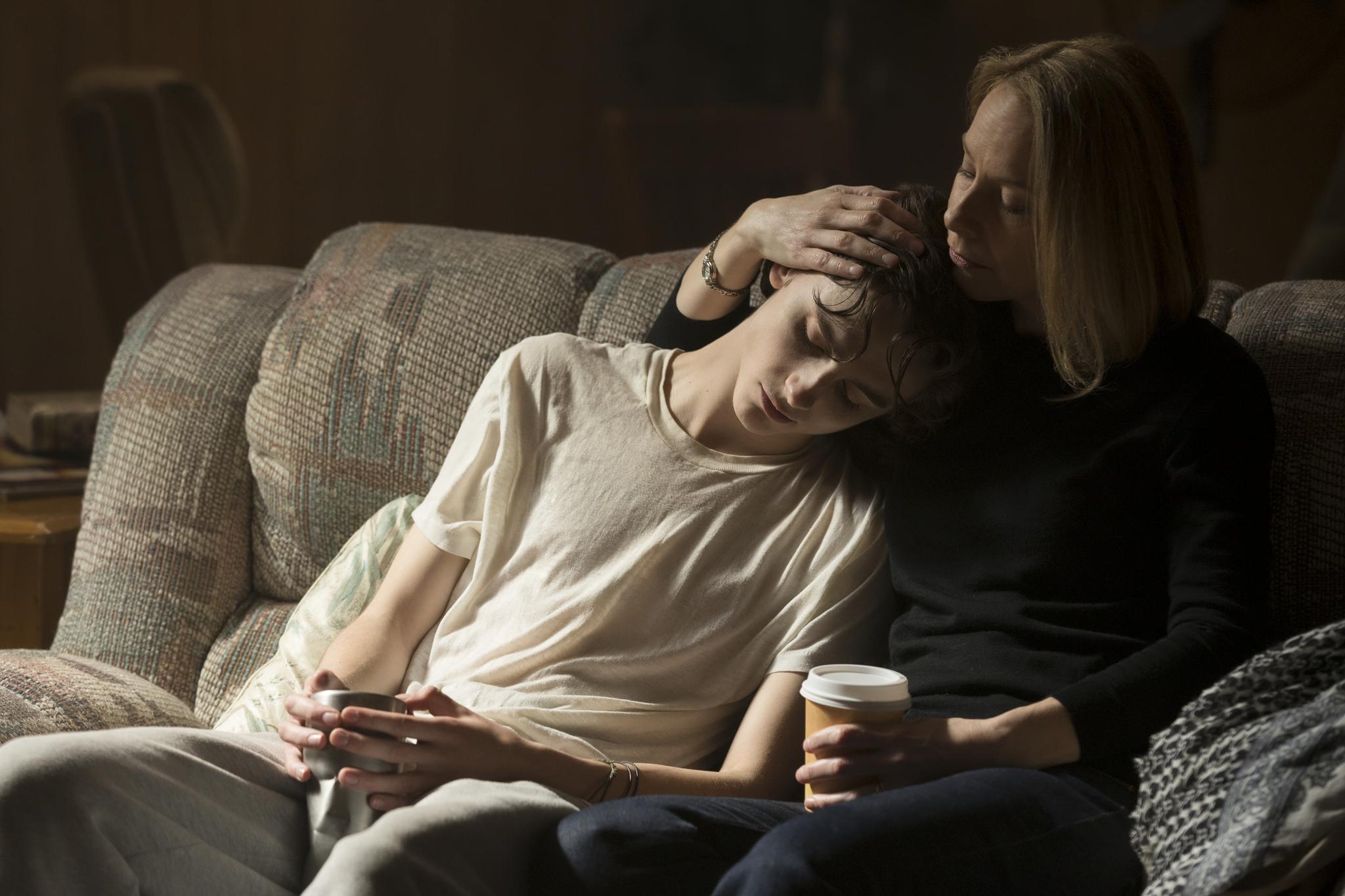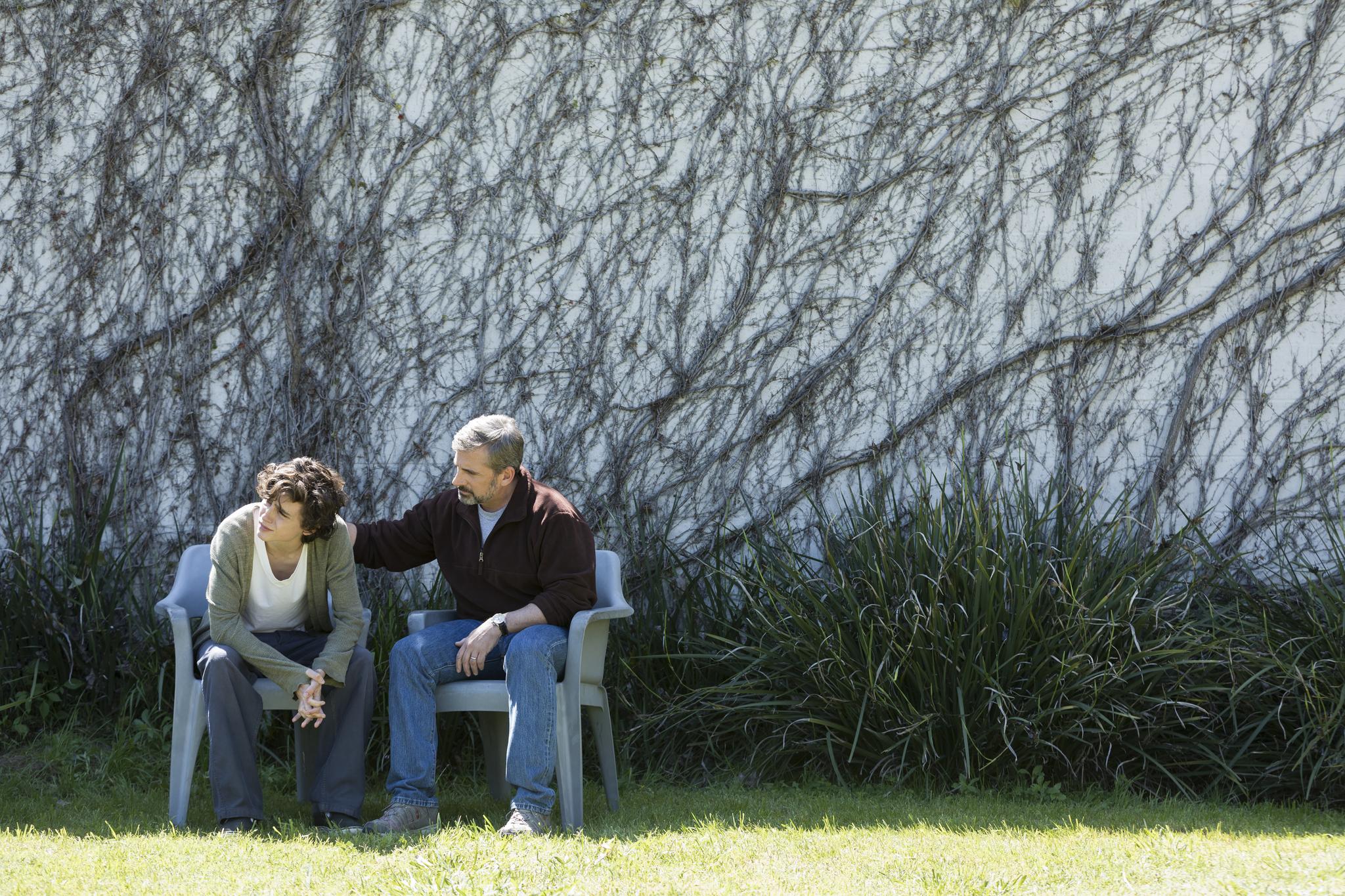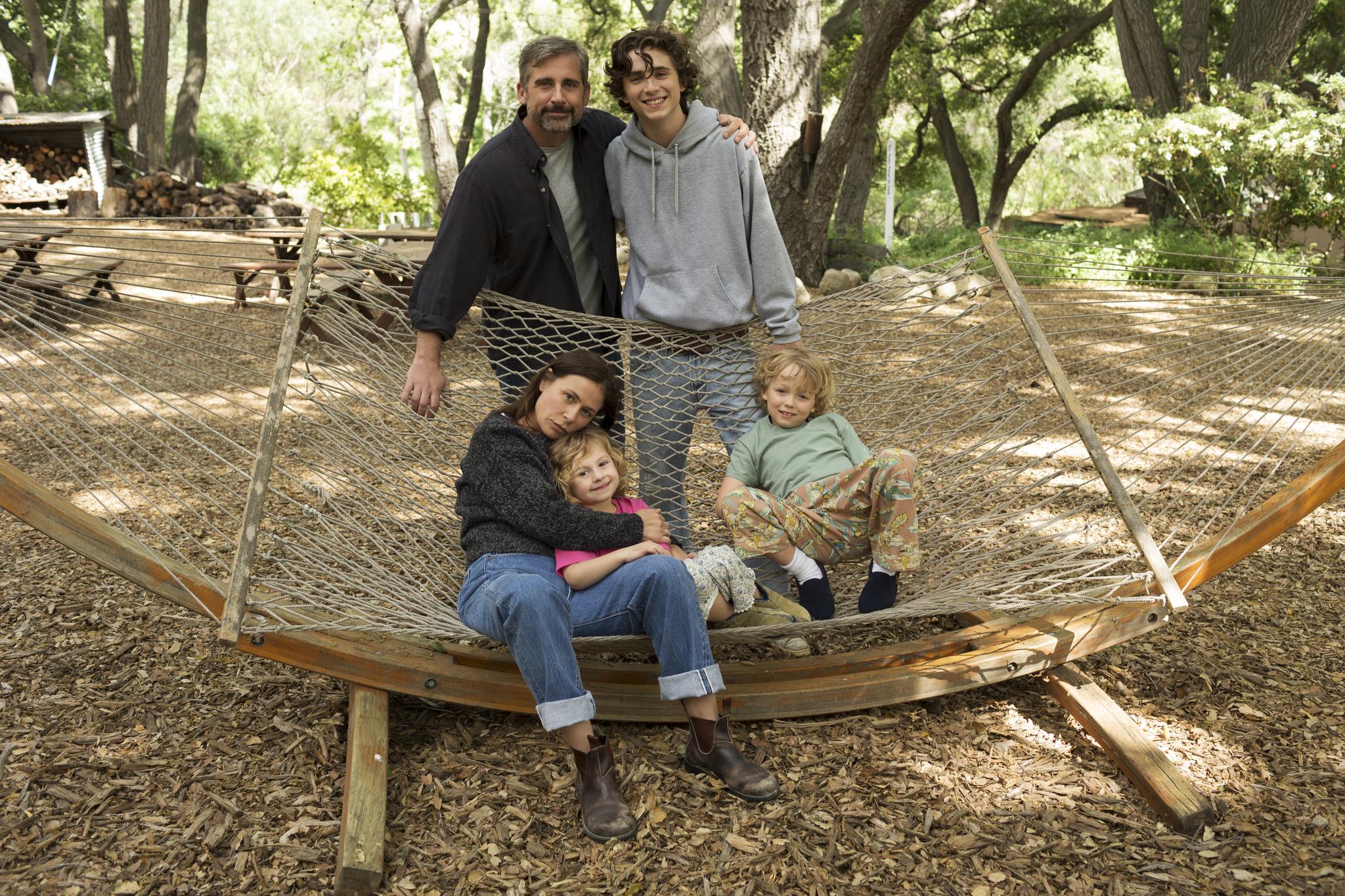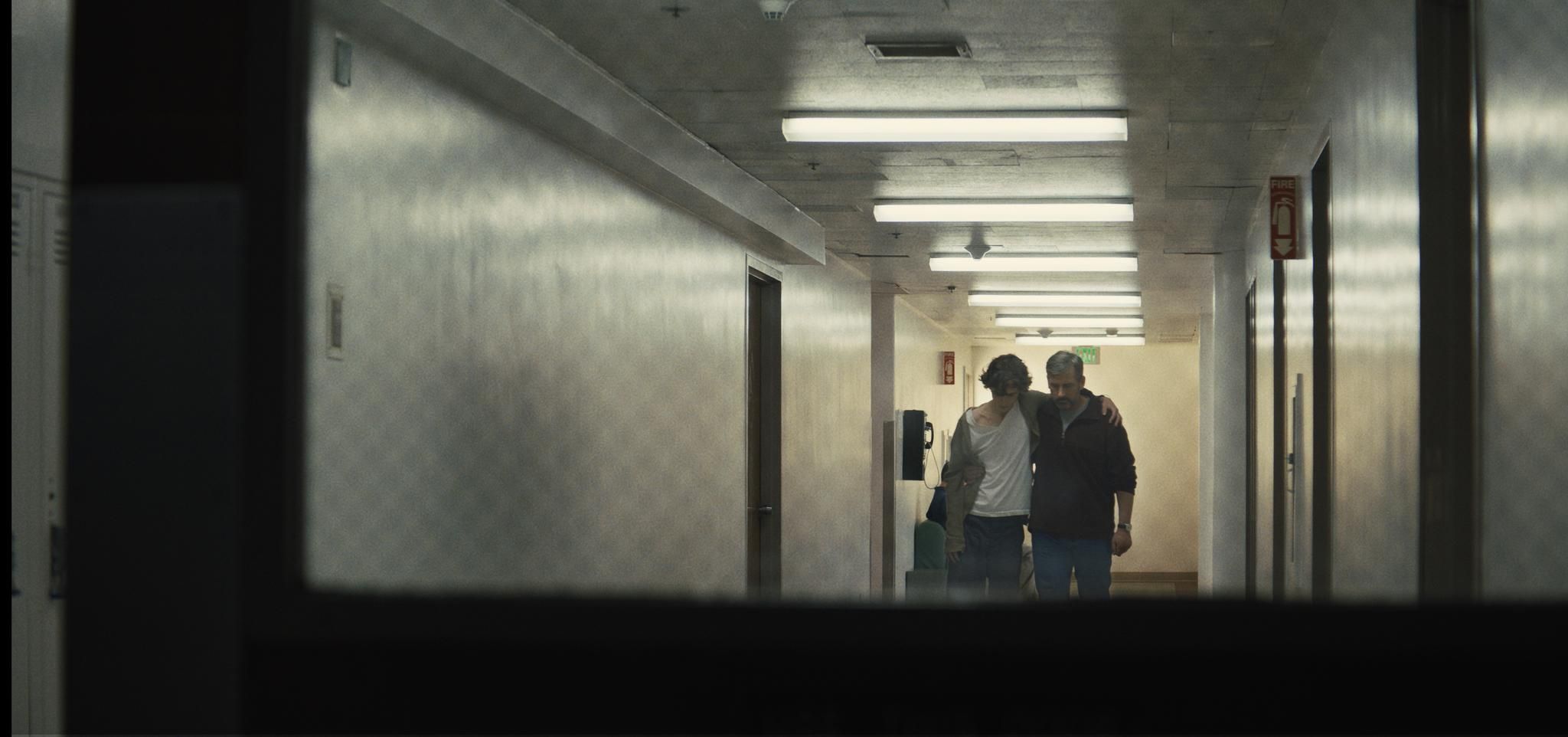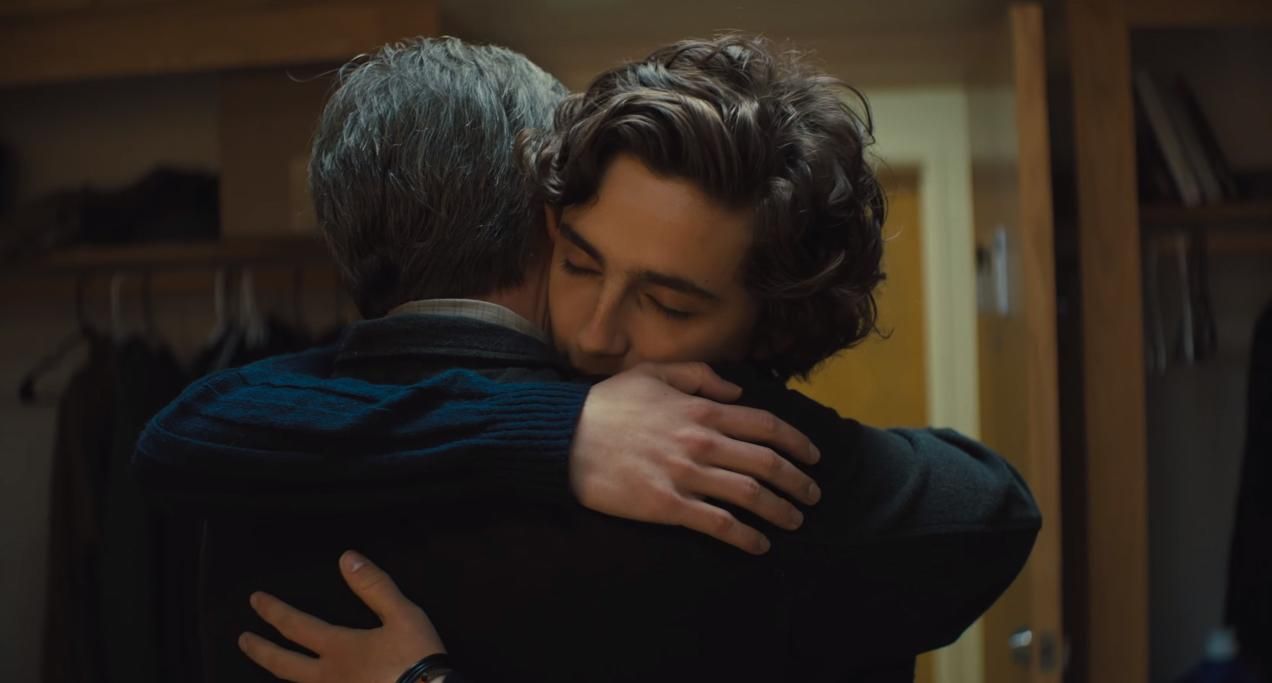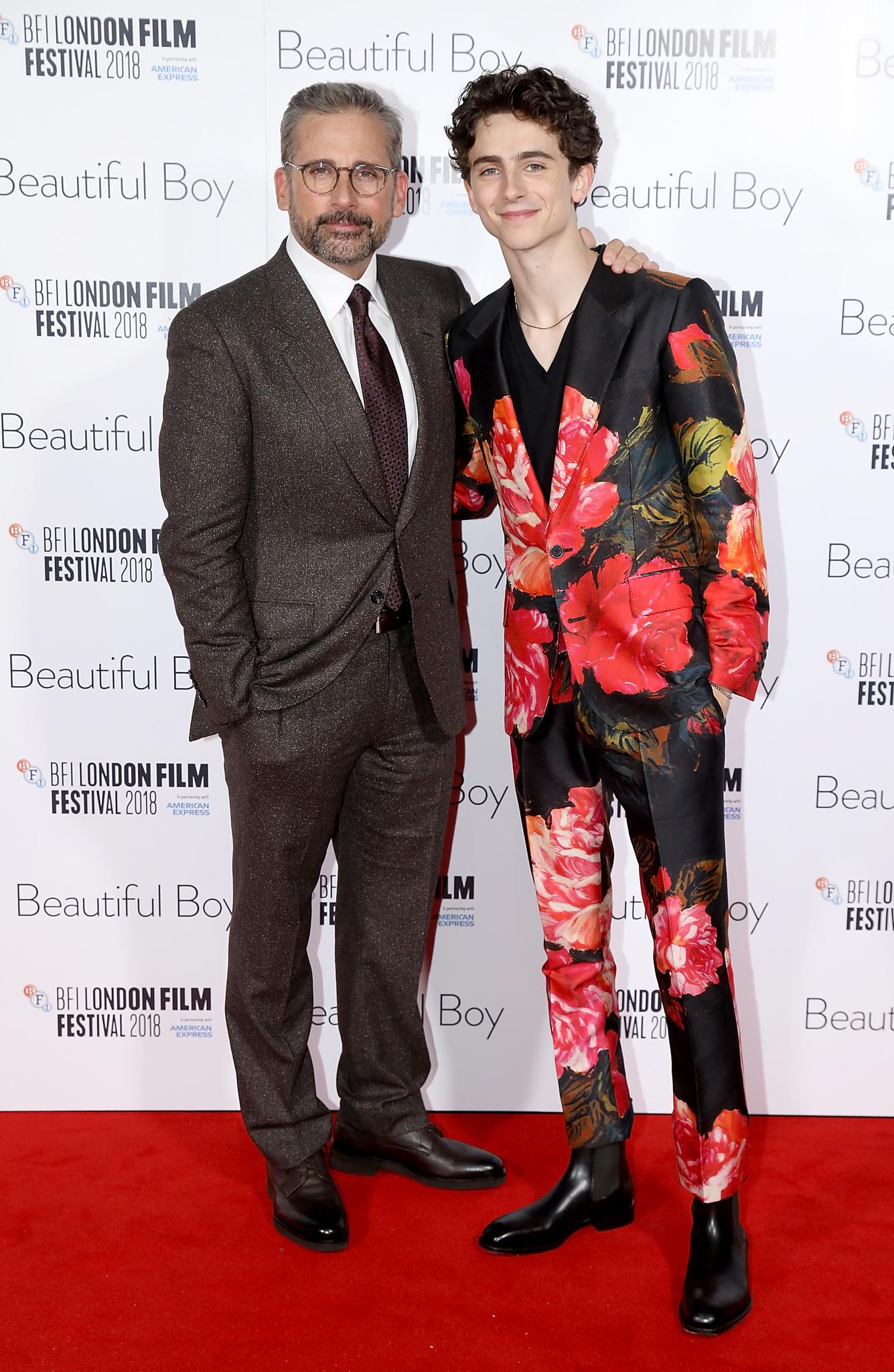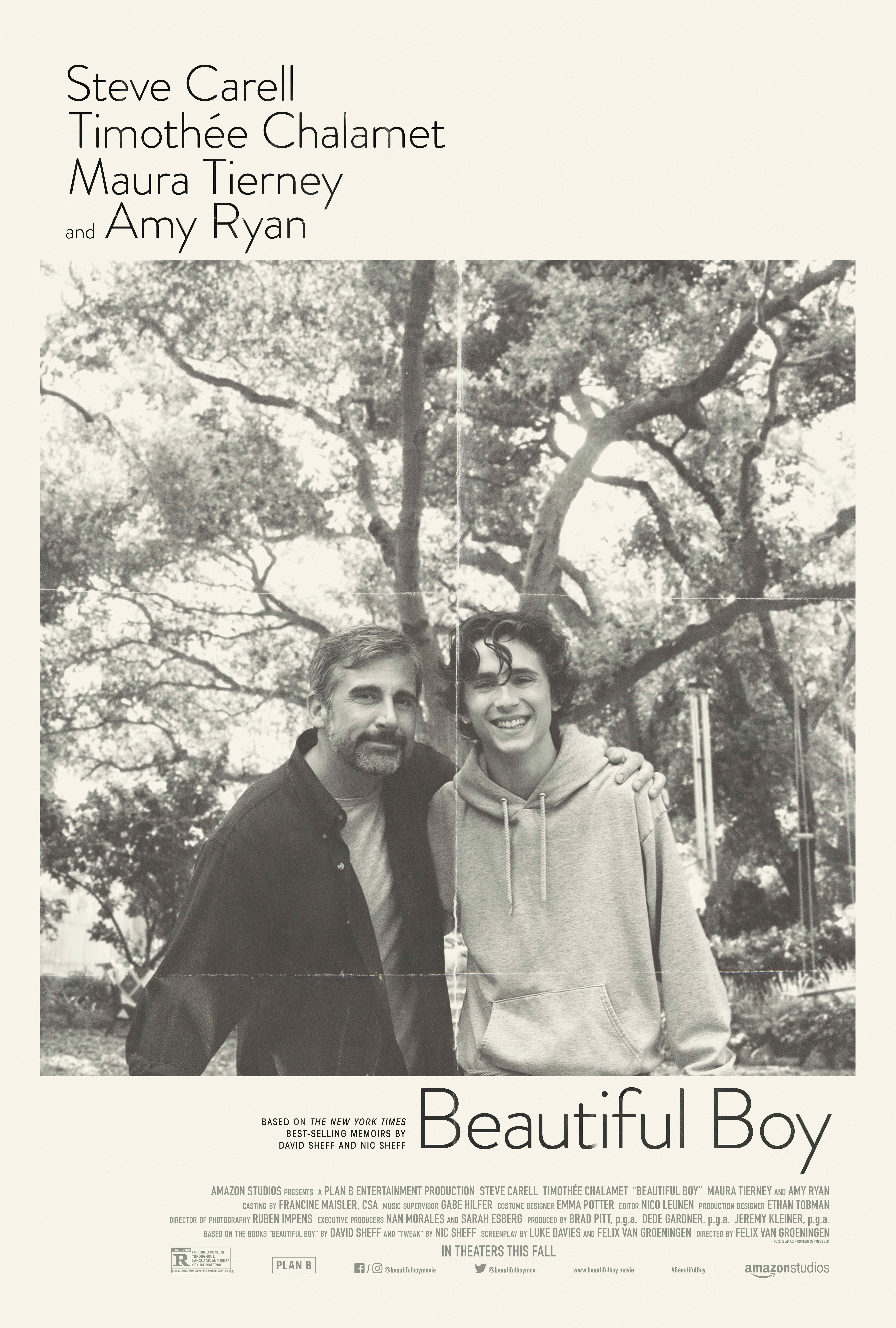Synopsis
In the heart-tugging drama , journalist David Sheff, portrayed by Steve Carell, battles the harsh realities of addiction affecting his family. David grapples with his son Nic's increasing dependency on drugs, especially the dangerous lure of crystal meth, leading him to a renowned addiction expert in hopes of saving his son from the precipice.
Journeying through flashbacks, the film unfolds the story of David's close-knit family life in San Francisco, where he lives with his second wife Karen, their children Jasper and Daisy, and his son Nic, from a previous marriage. Troubling patterns in Nic's behavior soon escalate, causing tension not only at home but also with David's ex-wife, Vicki, played by Amy Ryan. With Nic's situation spiraling, David enrolls him in a promising rehab program, hoping for recovery based on their heartfelt motto: "everything."
Nic's journey to sobriety is fraught with ups and downs that vividly illustrate the relentless grip of addiction. As Nic initially shows progress, choosing further treatment over college, hope glimmers. But this resolve falters when temptations lead him back to old habits, threatening to fracture family bonds and break his father's spirit. Despite reassurances that relapse is part of recovery, David's search for answers takes him on an eye-opening exploration, mimicking Nic's experiences to grasp the depth of his struggle.
As scenes of challenging confrontations and desperate measures unfold, an emotional meeting between father and son reveals Nic's unpredictable, erratic state, leading David to a heart-wrenching choice—to let go and allow Nic to carve his path to recovery. The film paints a poignant portrait of parental love, tracing David's relentless yet ultimately selfless support as he grapples with accepting his limits.
Despite setbacks, glimmers of hope return when Nic shows signs of reclaiming his life—achieving sobriety and rejoining society productively. Yet, the haunting shadow of relapse looms, bringing moments of uncertainty and tension back into the narrative. David and Vicki's collaborative care for Nic underscores the unconditional, albeit often challenged, love they share for their son. But the film doesn’t shy away from exploring the psychological grip of addiction, presenting moments where desperation battles against family unity.
The storyline reaches an emotional apex when Nic makes a significant choice for his future, signifying a poignant shift towards healing. The narrative concludes with a subtle yet profound reminder of the enduring struggle and the slim yet vital win of sobriety—a journey marked by continual resilience, as encapsulated in Nic’s eventual success in maintaining sobriety.
intricately weaves themes of familial devotion and the arduous challenge of overcoming addiction, culminating in a message of hope and the relentless fight for love over despair. This masterfully orchestrated story reveals the indelible bond between a father and son amidst life's unpredictable pathways.
Argument
a gripping tale drenched in emotional truth, encapsulates the heart-wrenching reality of addiction, particularly its devastating grip on families. Anchoring this narrative is David Sheff, portrayed by Steve Carell, whose journey delves into paternal desperation and obligation. The film opens within the sterile confines of a doctor's office, a reflection of David's frenetic internal battle. He is in dire need of guidance from Dr. Brown (Timothy Hutton), not for a journalistic scoop, but because he finds himself estranged from his relationship with his son, Nic, who is ensnared by the treacherous clutches of drug addiction.
The story quickly retreats to moments preceding this crisis, presenting a snapshot of familial normalcy in San Francisco. David and his second wife Karen, played by Maura Tierney, maintain a warm home with their children Jasper and Daisy. Nic (Timothée Chalamet), David's son from his prior marriage to Vicki (Amy Ryan), adds a layer of complexity to their domestic tableau. When Nic fails to return home one evening, alarm bells ring for David and Vicki, catalyzing a confrontation over parental responsibility and perception of Nic's behavior. This familial rift only deepens when Nic returns, struggling with a hangover—a sobering sign of his burgeoning issue.
Faced with a rising tide of distress, David initiates a recourse by seeking counsel from a rehab professional. The program boasted an 80% success rate, offering a beacon of hope. Nic's admission into rehabilitation is underscored by an emotive exchange with his father—each affirming their connection with a poignant "everything." This underscores a thematic thread: the binding, and sometimes blinding, love between them. Nic's subsequent decision to extend his stay into a halfway house instead of entering college illuminates a desire, albeit fragile, for stability and recovery.
Yet addiction proves itself a cyclical antagonist. David receives news of Nic's disappearance from the halfway house. Amid his growing frustration with the facility's passive stance on relapse, David's paternal instincts propel him to locate Nic, leading him to find his son at a moral and physical nadir. This episode, depicting an emotional and literal chase, brings Nic back into rehab. It further unravels the depths of Nic's indulgence in drugs, forcing David to confront the harsh, multifaceted reality of his son's condition.
Momentarily, the narrative offers a glimpse of hope as Nic appears to do better, aspiring to pursue education once more. The promise of renewal seems to hold, as illustrated by the affirmations exchanged yet again between father and son. However, this period proves ephemeral. Despite successful re-enrollment in academic life and a budding romance, Nic's venture into his girlfriend's medicine cabinet rekindles his previous vices. His descent into drug use spirals his life into disarray—derailing relationships and destabilizing his trust with David.
The chronological pivot mirrors the film's opening, with David seeking insights from Dr. Brown about the perilous nature of crystal meth addiction. Brown's bleak statistical reality—a stark contrast to prior reassurances—further destabilizes David. Driven by a need for empathy, he immerses himself in the addict's world, even experimenting with cocaine, though these ventures offer little solace. A subsequent altercation reveals Nic's visit is duplicitous, undermining trust when he seeks money under false pretenses, prompting David's staunch refusal to enable further dependency.
The devastating consequences of Nic's path manifest in an almost predestined overdose call from New York. David's frantic journey to a far-flung city encapsulates the persistent turmoil that shadows their lives. Despite Nic's discharge against medical advice, a chance diner encounter rekindles hope as Nic expresses a desire to mend his ways. The origin story of their mutual "everything" ritual serves as an emotional anchor—reminding both of love's enduring, albeit battered, presence.
An attempt at a relocation to Los Angeles with Vicki nurtures a semblance of recovery for Nic. Success at college and a budding rapport with his sponsor Spencer (Andre Royo) denotes a tenuous peace, yet trust remains a contentious territory, evidenced by David's insistence on drug testing during a family reunion. Despite Nic's outward acceptance, internal struggles persist, culminating in yet another relapse steered by old accompanying temptations.
Nic’s disappearance ignites another round of parental discord, with blame and accusations rife between David and Vicki. As parental boundaries and the undeniable impotence over the situation come to a head, Karen implores David to confront his limitations—a rare acknowledgment in a father's relentless pursuit to save his son. Yet addiction's indelible mark renders swift resolutions irrelevant.
When Nic's friend overdoses, the event spotlights Nic's isolation and vulnerability. The ensuing heartbreak and raw, unreachable cries to David underline a pivotal acceptance; David can no longer afford the role of savior. It forces Nic to self-reconcile, directing him to seek out recovery avenues independently. The harsh solitude of Nic's path is juxtaposed with David and Karen's journey through al-anon meetings, further entrenching their pursuit of healing.
The narrative nears its end amidst a critical overdose, underscoring the perilous grip of addiction. A fragile father-son reconnection materializes in a hospital setting—strength devoid of judgment or expectations. David's choice to embrace uncertainty over futile intervention hints at growth, albeit painful. Nic’s future emerges as ambiguous—bound with struggle yet brimming with the possibility of redemption.
Ultimately, "Beautiful Boy" leaves the audience with a final footnote: Nic, battling the demons within, achieves eight years of sobriety, a testimony not just to individual perseverance but to the intricate, unpredictable journey of familial love and endurance.
Cast

Steve Carell
David Sheff
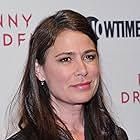
Maura Tierney
Karen Barbour
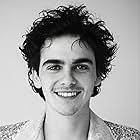
Jack Dylan Grazer
Nic Sheff (12 Years Old)

Oakley Bull
Daisy Sheff

Christian Convery
Jasper Sheff

Timothée Chalamet
Nic Sheff
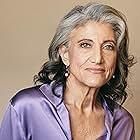
Amy Aquino
Annie Goldblum
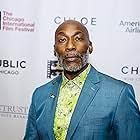
Carlton Wilborn
Vince

Stefanie Scott
Julia
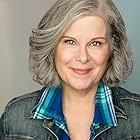
Marypat Farrell
Julia's Mother
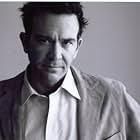
Timothy Hutton
Dr. Brown

Amy Forsyth
Diane

Kue Lawrence
Nic Sheff (5 Years Old)

Brandon James Cienfuegos
Kid

Cheska Corona
Kid

Mandeiya Flory
Kid

Martha T. Newman
Flight Attendant

Minerva García
Nurse @ Bellevue
Multimedia
